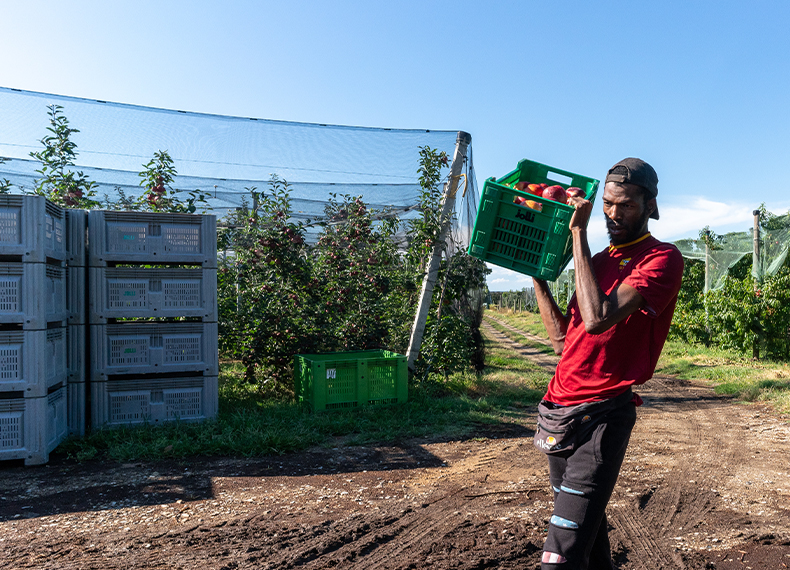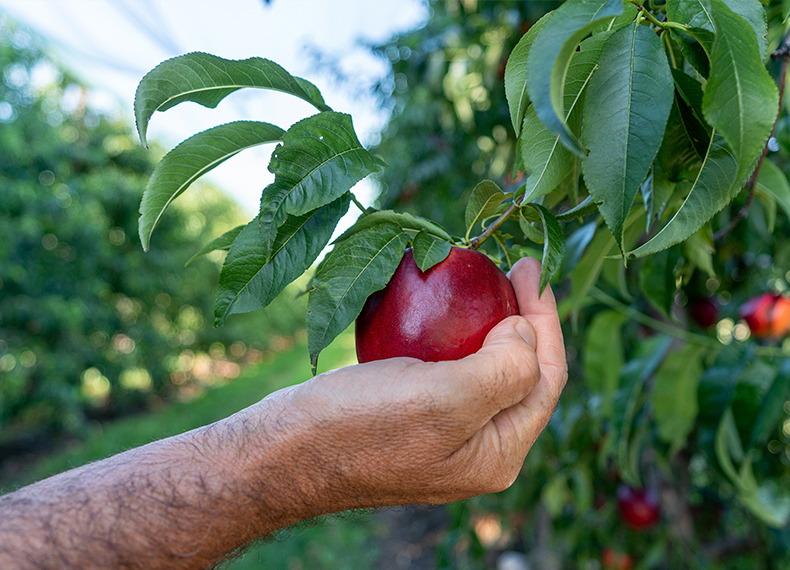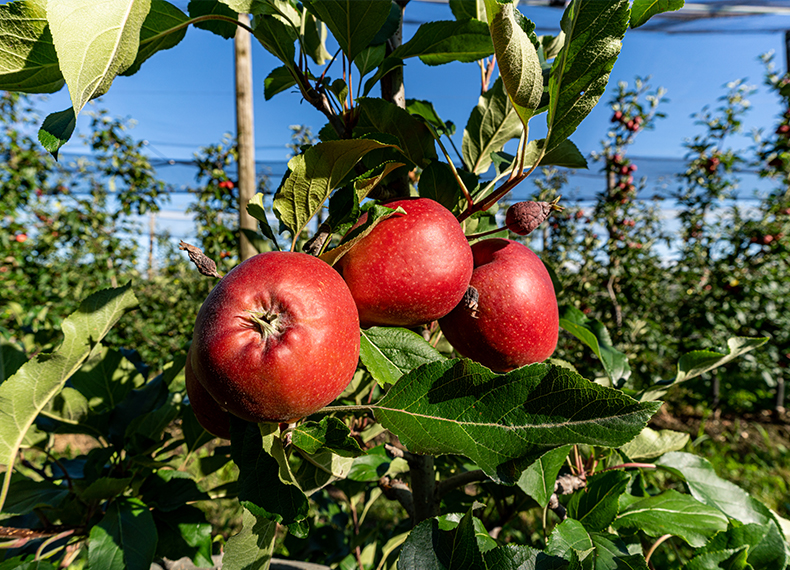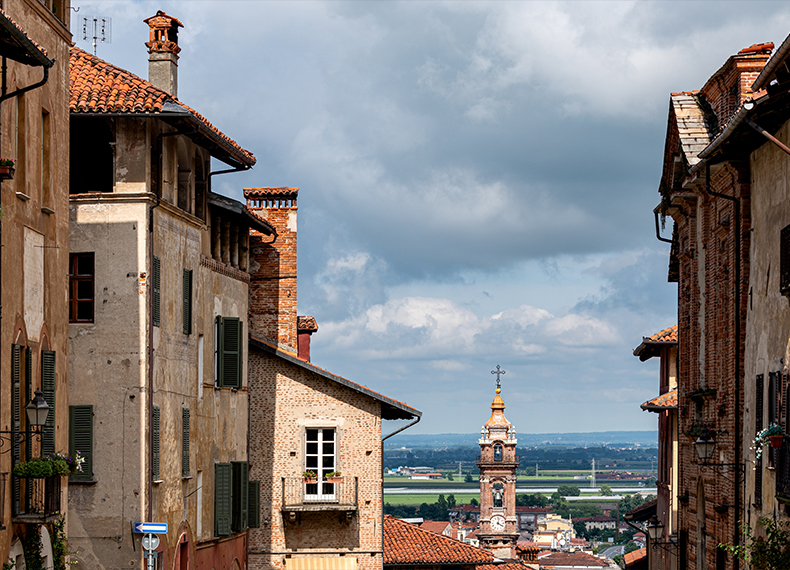
SALUZZO
Every summer, workers arrive with the hope of finding a job, and help sustain Saluzzo
Background
Saluzzo lies at the foothills of Monte Viso, one of the highest mountains in the Alps. The city is surrounded by fields full of fruit, especially apples, peaches, and kiwis. Here, agriculture plays an important role in the local economy – and seasonal laborers are essential to its functioning. Every summer, when workers arrive from sub-Saharan Africa with the hope of finding a job, they help sustain Saluzzo.
In 2010, workers were forced to sleep inside the old train station. The city responded by installing tents in a former cattle market. But it wasn’t until a local initiative, known as PAS (Prima Accoglienza Stagionali, or first seasonal reception), restored the army barracks that it seemed like Saluzzo had finally solved its temporary housing problem. COVID-19 changed everything. The city has closed the barracks and the workers are once again experiencing homelessness. Today, the main challenge for city officials, trade unions, and local organizations is to find decent accommodation for these workers. They must also consider the realities of exploitation and illegal hiring – problems often associated with the south, but still prevalent in the north.

Seasonal workers
They travel, by bicycle and on foot, the streets that connect the city to the fields. They wear reflective vests that sometimes save their lives, when they return after dark. The seasonal workers of Saluzzo leave at dawn and return at dusk, with little time to eat, call their relatives, and rest.
- Many workers arrive in Italy after a long and often life-threatening journey, leaving their families and loved ones behind
- Most of them are young, under 30, with dreams of learning how to cultivate crops and one day owning and operating their own farms
- Almost all of them send a large portion of their income back to their countries of origin, supporting families and communities

Farm owners
In Saluzzo, most farm owners respect the rules. They pay their workers living wages and, if possible, offer decent accommodations. But others circumvent the rules in unjustifiable ways, even in a sector struggling to compete with large-scale distribution.
- Farm owners want stricter controls in the supply chains of competing foreign countries, on par with those in Italy
- They want governmental institutions to reduce the taxes associated with hiring seasonal workers
- They are open to investing in housing for their workers, with some financial assistance

Labor unions
There simply aren’t enough jobs available in Saluzzo’s agricultural sector. The city cannot provide work for all the seasonal workers that arrive each year. Sometimes, the prices of products are so low that they barely cover the costs of production. According to labor unions, that instability drives farm owners to look for ways to lower costs, even illegally.
- Unions want to monitor the hiring methods of farm owners, to ensure they comply with the rules
- They want seasonal workers to be paid within a time frame no longer than 60 days (abolishing the current practice of withholding wages for up to 300 days)
- They ask for a minimum price for products, which are often sold at excessively low costs

Government officials
Seasonal workers are a tricky topic in the city of Saluzzo. The government does not have the capacity to fill the fields with monitors and check for irregularities. For the past 25 years, the farming area has grown from 8,000 to 13,000 hectares and flourished with new varieties, which require more labor.
- Government officials want to regulate internal cash flows and create a mandatory public system to monitor supply and demand
- Today, 80% of seasonal workers are hired on farms – a testament to Saluzzo’s openness and hospitality
- The prefecture has sign a memorandum of understanding to ensure a safe reception for seasonal workers

Civil society
Non-profit organizations play an important part in welcoming seasonal workers. In 2014, a local Catholic charity started the Saluzzo Migrante project, which offers legal and social support to workers in a communal meeting space.
- Local organizations provide an essential service in helping seasonal workers find temporary housing
- They believe that seasonal workers should have the right to economic independence and reasonable accommodation, even if shared
- They ask for greater involvement from government; currently, only eight officials are responsible for welcoming seasonal workers
